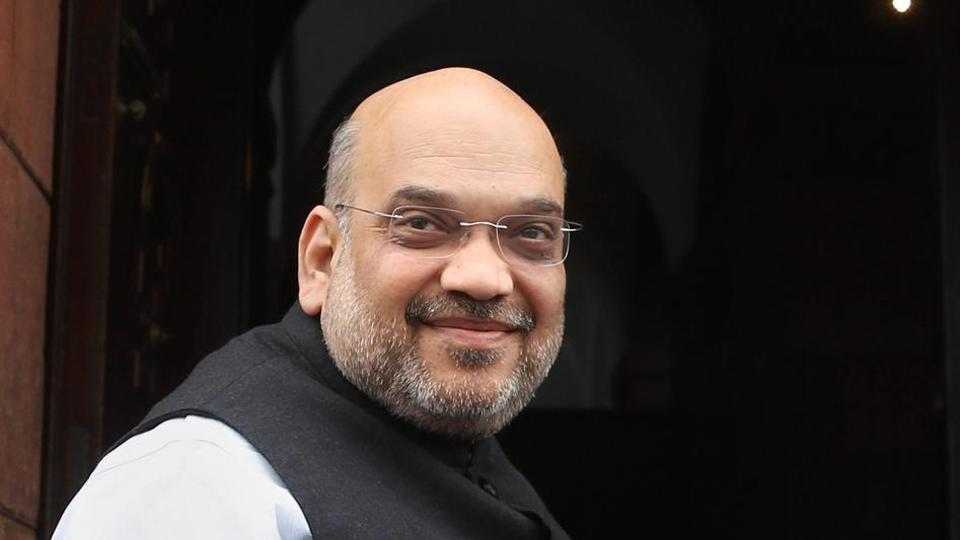In yet another major success for the Modi government, a tripartite agreement has been concluded between the Centre, Assam government and the representatives of the Bodo outfits. All factions of the banned organisation, National Democratic Front of Bodoland (NDFB), All Bodo Students’ Union (ABSU) that has been leading the movement for a separate state of Bodoland by dividing Assam are signatories to this historic agreement. With this the militant groups have given up on violence and the demand for a separate Bodoland has also been given up, thereby preserving the territorial integrity of the state of Assam.
PM Modi took to Twitter describing the importance of the agreement. He said, “Bodo Accord inked today stands out for many reasons. It successfully brings together the leading stakeholders under one framework. Those who were previously associated with armed resistance groups will now be entering the mainstream and contributing to our nation’s progress.”
Bodo Accord inked today stands out for many reasons.
It successfully brings together the leading stakeholders under one framework.
Those who were previously associated with armed resistance groups will now be entering the mainstream and contributing to our nation’s progress. pic.twitter.com/h7hCRI1o5H
— Narendra Modi (@narendramodi) January 27, 2020
The agreement provides for setting up a commission to reconstitute the Bodo Territorial Areas District (BTAD) by including new Bodo-dominated villages that are contiguous to the existing BTAD areas, and excluding villages with a predominant non-tribal population. The BTAD itself would be renamed as the Bodo Territorial Region. Moroever, with this agreement Bodo will be notified as the associate official language in Assam.
The historic success is going to pave the way for peace in the region, bringing an end to violence by Bodo militants, which as emphasised by Union Home Minister Amit Shah, has resulted in more than 4,000 deaths over the past few decades. However, Bodo militant outfits are going to shun arms and give up on violence owing to this crucial accord.
Announcing how peace is going to prevail in the region, Shah said, “Today Centre, Assam Govt and Bodo representatives have signed an important agreement. This agreement will ensure a golden future for Assam and for the Bodo people. 1550 cadres along with 130 weapons will surrender on January 30. As the Home Minister, I want to assure all representatives that all promises will be fulfilled in a time-bound manner.”
On its part, the government has announced a compensation to the tune of Rs. 5 lakh for the kins of Bodo rebels who died during their violent struggle. A rehabilitation package will also be given to those cadres who have given up on arms and have surrendered according to the terms of the tripartite agreement.
The Sarbananda Sonowal government in Assam will withdraw cases against NDFB cadres, including non-heinous crimes. Serious offences on the other hand will be reviewed on an individual basis. In another landmark decision within the ambit of the latest agreement, the number of Assembly seats falling within the Bodo Territorial Council (BTC) will go up to 60 from the present 40.
It has also been stipulated by the historic agreement that an economic package of Rs. 1,500 crore will be released in the concerned areas spread over a period of three years. The Assam government and the Centre will contribute in equal proportion towards this economic package.
With a view of ensuring autonomy, it has also been decided between the three parties to the agreement that the top executives in the Bodo dominated districts namely the Deputy Commissioners and SPs will be posted in consultation with the BTAD chief executive member.
This accord finally seems like a foolproof step towards ensuring peace in the Bodo-dominated areas. This is the third Bodo agreement till date. The first one was signed in 1993 that led to the creation of the Bodo Autonomous Council, however having limited political powers, it failed. The second agreement that was signed in 2003 with the Bodo Liberation Tigers that led to the constitution of the Bodoland Territorial Council had also failed.
However, the new accord is set to solve the issue conclusively owing to primarily two main factors- the Bodo Territorial Region (as the BTAC will now be called) is going to be vested with greater administrative, legislative, executive and financial powers. Secondly, the Modi government has been able to bring the militant outfits on the board in this agreement. With the armed groups renouncing violence, the new arrangement created by the tripartite agreement becomes far more efficacious and workable.
Union Home Minister, Amit Shah too understands the importance of this development. He said, “This agreement will facilitate all-round development of the Bodo areas, their language and culture will be protected without compromising the territorial integrity of Assam”.
The tripartite agreement hence comes as a huge success for the Modi government and the Assam government, insofar it conclusively resolves the Bodo issue.
